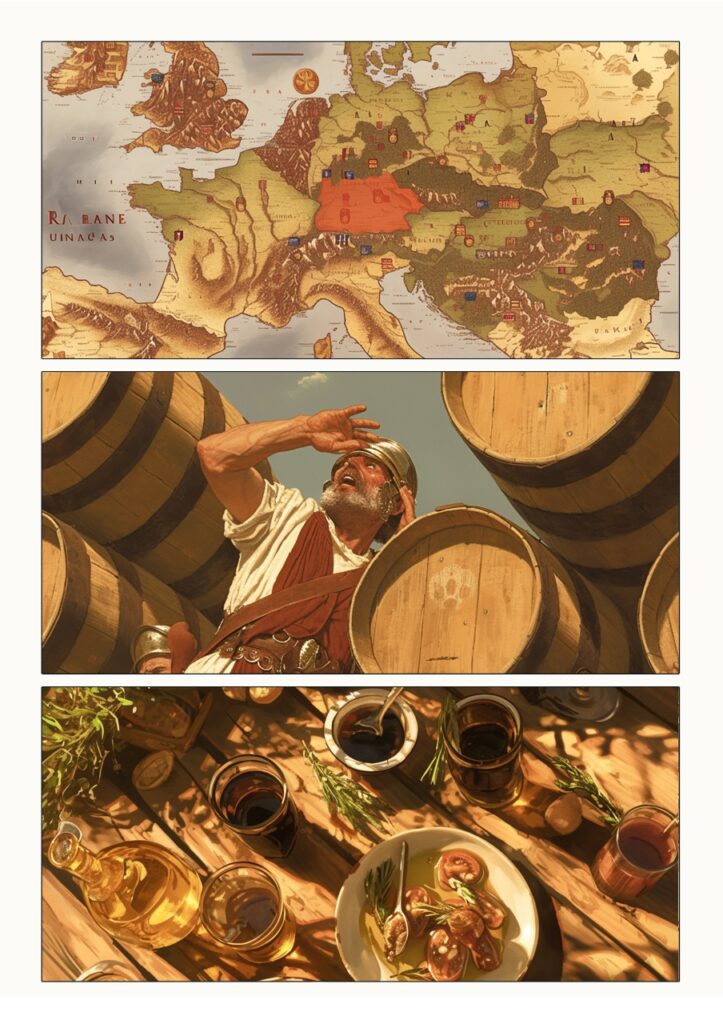In the world of vinegars, Grape Red Wine Vinegar stands as a testament to the rich tapestry of history and tradition. Let’s embark on a journey through time, exploring the ancient roots of this exquisite elixir that traces its origin to the heart of the Roman Empire.
Legend has it that during the era of Julius Caesar, a peculiar tradition unfolded in Roman households. As grapes ripened in the vineyards, excess wine was often transformed into a distinctive vinegar. This practice not only served as a means of preservation but also gave rise to a culinary marvel — Grape Red Wine Vinegar.
An amazing story about a Roman centurion who discovered that wine turned to vinegar unfolds. It is said that after a victorious battle, he stumbled upon barrels of forgotten wine, left untouched for months. To his surprise, the wine had evolved into a complex, tangy elixir that awakened his taste buds like never before. The accidental discovery led to the birth of a culinary tradition that would withstand the test of time.
Intriguingly, the Romans wove this discovery into their mythology, attributing the transformation to Bacchus, the god of wine. According to the ancient tale, Bacchus blessed the wine, allowing it to metamorphose into vinegar, symbolizing the cycle of life and the importance of embracing change.
As centuries passed, Grape Red Wine Vinegar became a staple in Roman kitchens, celebrated not only for its unique flavor but also for its purported health benefits. It was believed to possess the power to invigorate and revitalize the body, a notion that resonated through the ages.
Today, as we savor the exquisite notes of Grape Red Wine Vinegar in our salads and marinades, let’s raise our glasses to the ancient Roman centurion and the whimsical twist of fate that brought forth this culinary masterpiece. The legacy of Grape Red Wine Vinegar continues to enchant us, bridging the gap between ancient traditions and modern gastronomy, and reminding us that sometimes, the most delightful discoveries emerge from the pages of history.

Sign Up for Special Offers